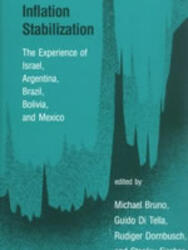Book
Inflation Stabilization
The Experience of Israel, Argentina, Brazil, Bolivia and Mexico
Rampant inflation is a major economic problem in many of the less developed countries; two out of three attempts to stabilize these economies fail. Inflation Stabilization provides a valuable description and a critical analysis of the disinflation programs introduced in Argentina, Bolivia, Brazil, and Israel in 1985-86, and discusses the possibility of such a program in Mexico. It documents the initial steps in stabilization as well as the reasons for failure. As architects of the programs, several of the authors are in key positions to assess which aspects were critical in getting the programs accepted and where to look for difficulties and failures.
 Join the network
Join the network